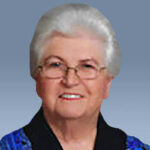But I say to you that listen, love your enemies, do good to those who hate you, bless those who curse you, pray for those who abuse you.
Luke 6:27-28
Jesus encourages us to be loving, not just toward people we like, but loving people we don’t like, even people who have hurt or abused us. Jesus’ focus extends beyond our extended family, to the Christian fellowship, our neighbors, work-mates and people we may not know at all. In these words Jesus gives us an ethical guide to the Christian life, saying that love involves not judging or condemning people, but rather being open, forgiving and generous. These are not easy instructions to follow. It is not a message that we naturally want to hear, because our natural inclination is not to “turn the other cheek” or to give a freeloader the chance to abuse our generosity. Our natural inclination is to get something back for helping other people. What we get back may be the satisfaction of helping someone, and that is not a bad thing unless it is not the only reason that we help them.
When I was teaching health education at the university, I had students who were preparing to go into various helping professions, nursing, physical therapy, occupational therapy, or teaching. I always asked them in the first class of the semester, “Why do you want to work in a health profession?” And invariably most students would say that they liked helping others because it made them feel good. The good feeling that they had after helping another person was what enticed them to be in a helping profession. This is generally our human response to helping others. It does make you feel good when you see that your assistance has benefited someone. But if that is the only reason we help another person then we are helping them for ourselves rather than as a gift of love.
So Jesus is saying something that we would not naturally want to hear. It is important to admit to ourselves that we are naturally inclined to want some gratification when we have been wronged by another. Jesus is saying in this version of the Sermon on the Plain that we must search our own hearts and forgive and care for those who have treated us badly. To “turn the other cheek” when someone has wronged us is a response that comes directly from the grace of God that God pour into our hearts, not from our natural tendencies.
In reality many of our acts of “love” are selfishly motivated. We love others in order to be loved or appreciated in return. Often, whether or not we continue to serve and love others is conditioned by how they respond toward us. Jesus seems to be saying that expecting love in return for the love we have given is not loving as God loves us. We are to serve others, expecting nothing in return from them. Our reward will come from God, and in the bounty of God’s grace He always rewards us far beyond that which we deserve.
We also have to remember that God’s thoughts are not our thoughts, nor are His ways our ways. But that is part of learning to love as God loves us. Only after recalling what Christ has done for us can we see that these hard things are exactly what it means to follow Jesus, and what our fallen nature has the tendency to reject.
The renewing of our minds requires that our thinking and motivations change from our natural way of thinking into the way of Christ. This is a lesson we will probably have to learn more than once, but it is founded in the grace of God through Jesus Christ, for all people.
Questions
- When have you loved your enemy or did good to someone who hated you? How did you deal with that, and how did God help you love them?
Have you ever experienced what we call “burn out”? Could it have been prompted by not getting in return what you expected from all that you gave to those who totally disregarded your gift?
- How can you find ways of learning to love as Jesus wants us to love in your community, your congregation, your profession, or at home?
Sue is NLS Spiritual Director, since 2019 and is a retired Lutheran Pastor (ELCA). Active in VdC since 1995, she has served two terms on the Board of the Texas VdC Secretariat, and also on the Texas Gulf Coast VdC Board as Spiritual Director since its start-up in 2017.



